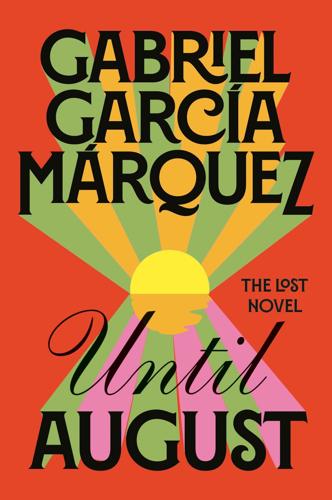

- Eduardo Verdugo
In this March 6, 2014 file photo, Colombian Nobel Literature laureate Gabriel Garcia Marquez greets fans and reporters outside his home on his 87th birthday in Mexico City.
The publication of “Until August,” the latest — and last — book from Colombian writer and literary icon Gabriel García Márquez, has been marked by controversy since it was announced.
When the Nobel laureate died in 2014, he had been suffering from dementia for almost a decade. While he was still writing — haltingly — he bemoaned the loss of his memory, “at once my source material and my tool. Without it, there’s nothing.” During those years, García Márquez worked on what he envisioned to be a multi-stranded, 600-page novel, which was excerpted in the New Yorker in 1999 and which the author read from at a festival in Madrid the same year.
When he died, though, that novel was little more than a single fragment, presumably one of the anticipated narrative strands. Unhappy with the results, García Márquez said, unequivocally, “This book doesn’t work. It must be destroyed.”
Obviously, it was not destroyed. As they explain in the foreword to “Until August,” his sons and literary executors revisited the work years after their father’s death, and discovered it to be “much better than we remembered it,” calling their decision to publish the work “an act of betrayal,” in which they “decided to put the readers’ pleasure ahead of all other considerations.”
The posthumous publication of a writer’s work — especially against their expressed wishes — is a complicated issue. On the one hand, it is easy — and morally correct — to grant the writer the right to determine how, or if, their work is published. But from a reader’s point of view, it’s not that straightforward. Where would we, as readers, be if Max Brod had followed his friend Franz Kafka’s command to burn his unpublished works — including “The Trial,” “The Castle” and “Amerika” — at the time of his death? But what of Ernest Hemingway’s legacy, which has suffered with a string of dodgy posthumous publications?
It’s a complex matter and one that is going to become even more significant as a massive wave of writers age and die.
But what about this case? Were Rodrigo and Gonzalo García Barcha justified in contravening their father’s wishes?
“Until August,” to much relief, doesn’t tarnish the literary legacy of Gabriel García Márquez. It’s certainly not in the front rank of his work (but then, few books even come close to “One Hundred Years of Solitude” or “Love in the Time of Cholera”) and if it’s his weakest work (which it very well may be), it’s not embarrassing.
“Until August” follows Ana Magdalena Bach who, every August, takes a ferry from her home to an unnamed island to place a “bouquet of gladioli” on her mother’s grave (Ana remains puzzled, years later, as to her mother’s motivation for being buried on the island, where she did not live). She stays overnight and heads home.
One year, however, Ana takes a lover, setting in motion the pattern that shapes the story: an erotic adventure limited to a new lover on a single day each year, isolated flings that nonetheless ripple through her normal life. In the background, the reader witnesses the development of the island, the shift from a “destitute village, with its mud-walled shacks, palm-thatch roofs, and streets of burning sand” to a tourist destination, with gaudy and overbooked hotels.
Despite being pieced together from a “final” manuscript and various edited fragments, the book reads well, with a voice that is unmistakably that of García Márquez (well translated from the Spanish by Anne McLean). The story’s final pages serve to nicely underscore Ana’s development, tying into a larger story that, sadly, we will never see.
The key question is likely this: should I read “Until August?”
And the answer is yes, with one caveat: approach the book with diminished expectations. This isn’t a lost masterpiece, by any means. It is, however, a diverting read and, perhaps more significantly, a stark reminder of what we as a community of readers have lost, not only with García Márquez’s death, but with the condition that shattered his final years.
*****
Credit belongs to : www.thestar.com
 MaharlikaNews | Canada Leading Online Filipino Newspaper Portal The No. 1 most engaged information website for Filipino – Canadian in Canada. MaharlikaNews.com received almost a quarter a million visitors in 2020.
MaharlikaNews | Canada Leading Online Filipino Newspaper Portal The No. 1 most engaged information website for Filipino – Canadian in Canada. MaharlikaNews.com received almost a quarter a million visitors in 2020.










